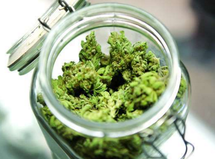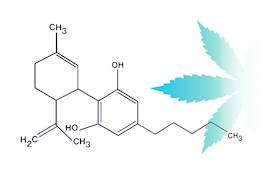|
CDC and State Health Departments caution those who use vaporized oil products
The promotion and sale of e-cigarettes as an alternative to smoking tobacco (and additives) in rolled paper along with the rising popularity of inhaled vaporized oils derived from the Cannabis plant is new to everyone, even those of us in the scientific community. The Increasing use of these new products is revealing new potential harms. We know that inhaling smoked oils from burning oil reservoirs is harmful and may even be the cause of Gulf War Syndrome. We know that inhaling smoke oils in poorly ventilated restaurant kitchens causes a decrease in forced expiratory volume (FEV) among employees. Data from The Dosing Project™ (www.thecesc.org) reveals a significant increase in self-reported cough among those vaporizing Cannabis flower in comparison to smoking Cannabis flower. Poly-ethylene glycol, vegetable glycerin, or tocopheryl acetate (Vitamin E), common fillers in e-cigarette and Vape pen cartridges, have been implicated as a potential throat and lung irritant. The CDC along with State Health Departments are investigating an increase in serious lung disease not associated with other causes and associated with recent use of e-cigarettes and/or Cannabis oil Vape pens. At this point they have noted at least 215 cases over the last two months. The disease has similarities to lipoid pneumonia, which is distinguished by macrophages exhibiting large intracellular vacuoles in lung tissue. Exogenous lipoid pneumonia is generally considered a rare and benign condition. Patients report cough, fatigue, and shortness of breath. Chest X-rays are non-specific. Chest CT may demonstrate “ground glass” opacities representing thickened interlobular septa. Two of recently reported cases have resulted in death. 10.8 million U.S. adults are currently using e-cigarettes and more than half of them are 35 years old or younger. 2018 data reveals that the Vape pen market is approaching 20% of the inhaled cannabis products sold. This rise in incidence of serious adverse event was bound to occur with the recent shift in social behavior to inhaling vaporized oils. Whether the damage is do the method of administration, ingredients in the oil itself, or contaminants is uncertain. It is appropriate for the CDC and state health departments to caution those who vaporize oils to seek medical attention if the presenting symptoms occur. Patients with chronic lung conditions (Asthma, COPD, etc.) who use Vape pens may consider use alternative methods to using Cannabis until we have more specific information can be gathered and analyzed. Dr. Jean Talleyrand, M.D. Chief Medical Officer MediCann & The CESC |
AuthorJean Talleyrand, M.D., Archives
September 2023
Categories |
Mailing Address: MediCann 1336 Willard Street, C • San Francisco, CA 94117
Important Disclaimer!
The information contained in this site does not intend to replace any medical advice or care by a trained physician.
Any use of this information is solely the the responsibility of the user.
Important Disclaimer!
The information contained in this site does not intend to replace any medical advice or care by a trained physician.
Any use of this information is solely the the responsibility of the user.
© COPYRIGHT 2015. ALL RIGHTS RESERVED.

 RSS Feed
RSS Feed


